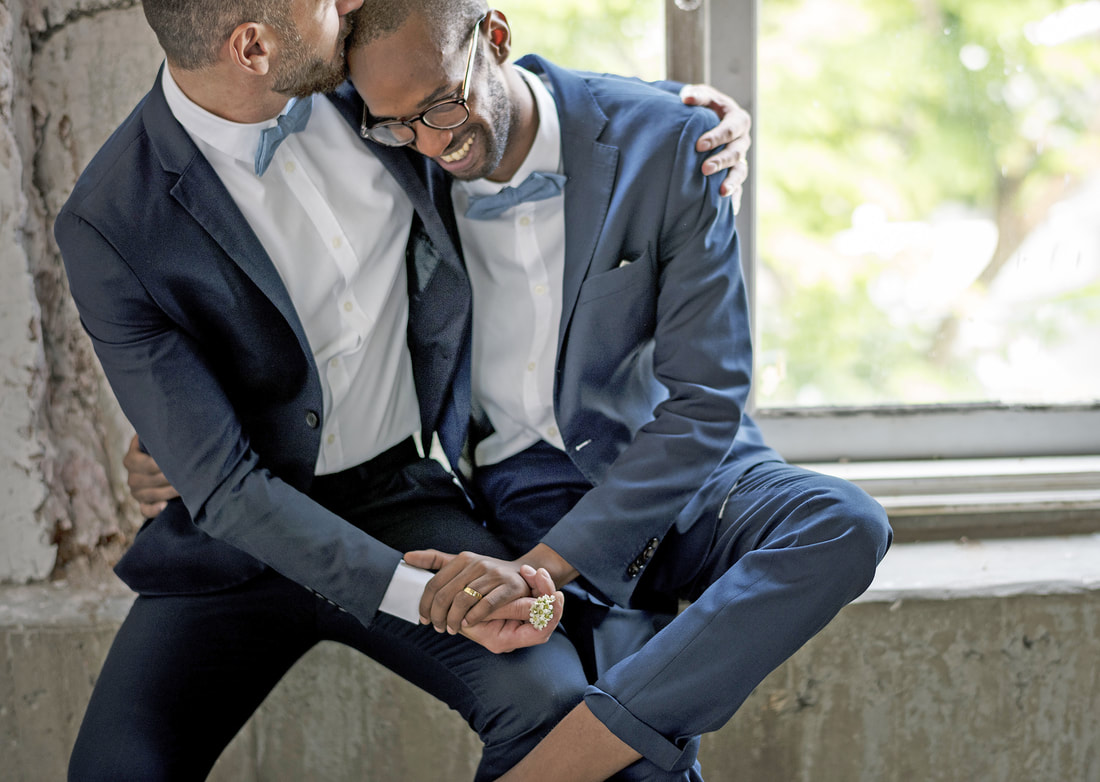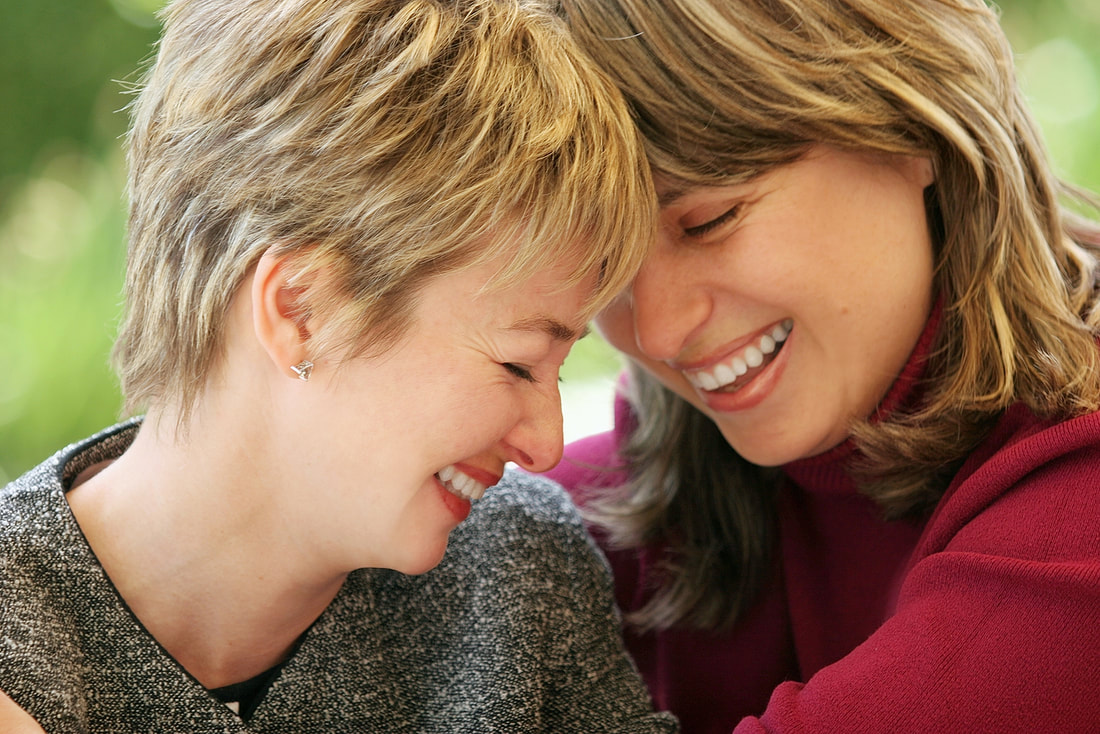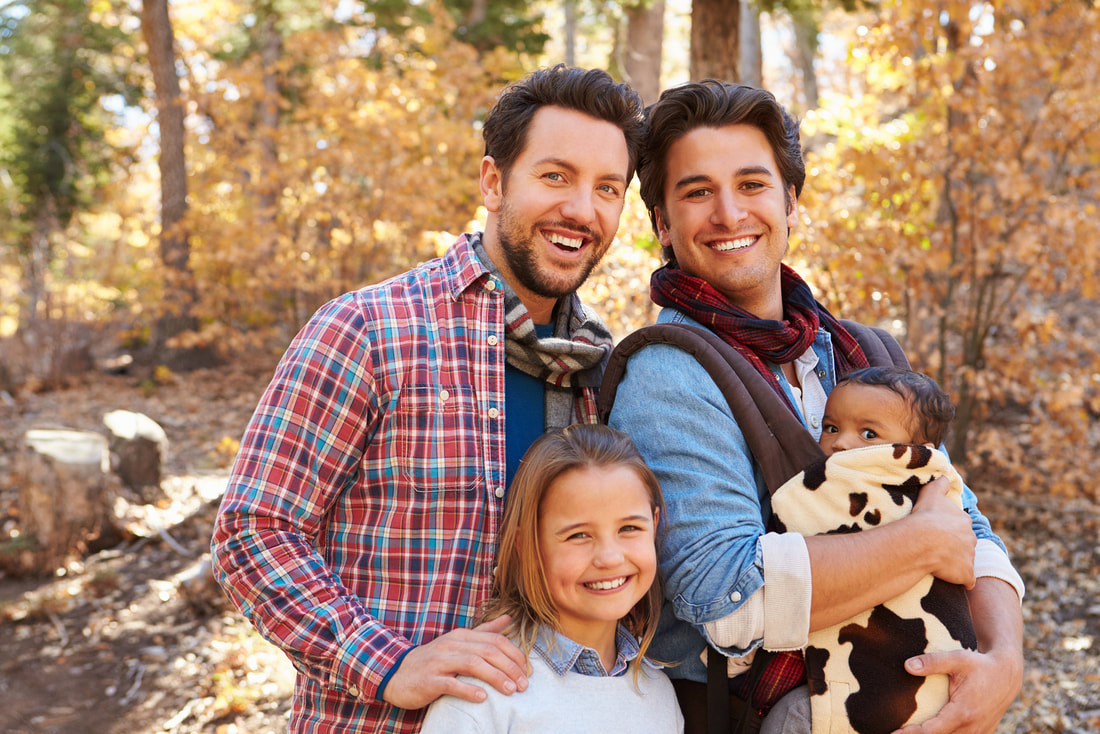Not Your Dictionary DefinitionGay men’s relationships have faced an onslaught of repeated attacks by society-at-large. Is gay marriage one of them? How will marriage equality impact gay relationships? How will gay marriages redefine the social construct of marriage? As of the date of this writing, 35 states have given same-sex couples the choice to have legal marriages, with many more states close to doing so. Given these developments, how do we make sense of our relationships? According to freedomtomarry.org, there is now 64% of the US population that are able to have same-sex marriages. While we may want the option to get married, will we choose to do so? Will it help or hurt us? As a gay Licensed Marriage and Family Therapist who has fought hard for marriage and family equality, I recognize the complexities of the cultural institution of marriage on our lives. It’s certainly far from perfect and has quite the tainted history, kind of like the field of psychology as it relates to sexual and gender minorities. Marriage, as an institution, has been used historically to devalue women, being LGBTQ, being single, being childless, being in an inter-racial relationship, being in a non-monogamous or polyamorous relationship(s), and has upheld male privilege and the perpetuation of the heterosexual ideal. However, we have also seen a major shift in what marriage means today since the women’s movement and the gay rights movement. Just as feminism has helped to empower women in their relationships, so too, marriage equality is changing the landscape of what it means to be married in a same-gender relationship. For many, marriage represents the significance of their relationship and their commitment. Society's ScapegoatsHistorically, gay men have been forced by a homophobic and heterosexist world to question and think more critically outside the traditional married/single boxes we grew up with, and discover relationship dynamics that better work for us. Of course, without the same kind of societal/familial support that our straight counterparts have, it has not always been easy. At times, we haven’t always valued ourselves in relationships and have also, inadvertently or otherwise, hurt others. Unfortunately, when we’ve been society’s scapegoats for decades, we learn to do to each other, what’s been done to us. We preemptively judge each other based on gender expression, age, socio-economic status and body shape, size and color. We defend against being hurt by walling ourselves off from our real authenticity. Out of self-protection, we limit our abilities to be deeply and emotionally intimate with one another. Thankfully, that’s not our only option. And when we heal, grow and evolve as individuals we also expand our capacity to be in a loving, sexual and mutually fulfilling relationship. We learn that operating at our best, is actually being genuinely compassionate with ourselves and with those around us. We move from self-hatred, to tolerance, to self-acceptance and hopefully, eventually to appreciation for our very beingness and what we have to offer the world. Traditional ParadigmsWe are both harmed and healed, in relationships. In constructing our most intimate relationships, we can do so with care, mindfulness and grace or instead, operate out of the mercy of our unconscious, directed unknowingly by the winds of societal shaming and devaluing of who we are as gay men. We can let the world define us and our relationships. We can use traditional paradigms, like marriage, to boost our relationship’s status. We can reject various forms of relationships that no longer work for us. What matters most, is coming to terms with how we’d like to be in relationship(s). There is not one RIGHT way and one WRONG way, although there may be a way that works best for us individually. What works for me, may not work for you, and visa versa. What we may imagine getting from a particular form of a relationship, may or may not come to fruition, regardless of our best efforts. Long-Term CommitmentAccording to a recent research article, same-sex couples and straight couples in marriage-like commitments, are similarly stable. It appears that making a strong long-term commitment to a loved one, increases the likelihood that it will come to fruition, regardless of sexual orientation. And the longer a couple is together, the longer time they have to integrate their lives, work out difficulties, share bonding experiences, and the less likely they are to break up (Rosenfeld, 2014). Divorce rates have gone down substantially in the heterosexual world, since the 1970’s and early 1980’s, especially among college educated couples. They have also married less, more frequently married for love and waited longer to marry. So, what does all this mean for gay marriage? Is it helpful or damaging to our specific relationships? Like many things, it depends on our intentions, actions, and inactions. Are you marrying because you finally can? Are you marrying as a political act? Do you hope that being legally married will change something about your relationship and/or how people treat you? How well do you know the person you’re marrying? Defining RelationshipsAnother recent research article describes an all too common occurrence among gay men expecting or hoping for support from their family of origin, rejection. The symbolic importance of marriage may cause some family members to more vocally come out against same-sex marriage, whereas previously a tacit tolerance may have been misconstrued as support. For others, hope that marriage will bring legitimacy for their relationships, ends up giving, yet another experience of rejection from certain family members (Ocobock, 2013). However, many do still describe more support for their relationship(s) from friends and family, after being married.
We as gay men, have an opportunity to define for our relationships what makes most sense to us. To survive, we’ve had to critically think about what we’ve been told about sex, love and relationships. What aspects of traditional values, if any, do we want to maintain that works for us? What new and improved ones do we want to create? Do we take the construct of marriage and change the way we define it to meet our own needs and relationship(s)? Or do we create relationships outside of this structure? Regardless of the form of our relationships, certain values contribute to their health, fun and vitality. Among these can be ongoing honest conversations about if and how to involved other people in our relationships. Getting clear consent and checking in frequently enough to see how things are going can enhance our relationships, regardless of whether they are monogamous, monogam-ish, open or polyamorous. Following through on these commitments strengthens our relationships. Taking enough time to determine how legal marriage will affect our particular relationship(s) is important to do. What are our expectations? Have we communicated these with our partner(s). What are the responsibilities and financial impact that come from a legal marriage? How can we be more loving, compassionate and respectful of our relationships, with or without marriage? This article was first published in The FIGHT Magazine, January 2015: http://thefightmag.com/2015/01/marriage-is-it-right-for-me/
2 Comments
10/29/2022 07:57:59 am
Marriage equality is the legal recognition of same-gender marriages. This means that couples who are of the same gender are able to enjoy the same rights and benefits as heterosexual couples. This includes the right to enter into a civil partnership, the right to adopt children, and the right to inheritance.
Reply
Leave a Reply. |
Categories
All
Archives
March 2022
�
|



 RSS Feed
RSS Feed